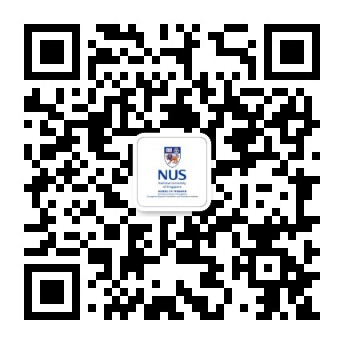Recently, the NUS Guangzhou Research Translation and Innovation Institute (NUS GRTII) hosted a Principal Investigators (PI) Forum at the University Hall of the National University of Singapore (NUS). The event was graced by distinguished attendees, including Professor Hang Chang Chieh, NUS Emeritus Deputy President and President of the NUS GRTII Council; Mr. George Loh, NUS Associate Vice President (Strategic Partnerships); Professor Shuzhi Sam Ge, Director of NUS GRTII. Dozens of PIs were invited to the event, including Professor He Bingsheng, Associate Dean (Research) of the NUS School of Computing; Professor Lim Chwee Teck, Fellow of the Singapore Academy of Engineering, Fellow of the Royal Society, and Director of the NUS Institute for Health Innovation & Technology; Professor Meng Qiang, Fellow of the Singapore Academy of Engineering and Director of the NUS Centre for Transportation Research; and Professor Yan Jie, Principal Investigator at the NUS Mechanobiology Institute.
As the cornerstone of NUS GRTII’s development, the PI team drives groundbreaking research, frontier knowledge exploration, and value creation, forming the foundation for an integrated ecosystem of research translation, innovation, and talent development. This forum strengthened the bond between NUS GRTII and its PI team, showcasing the exceptional innovation ecosystem and entrepreneurial resources of Guangzhou’s Huangpu District, as well as the robust resource platform and support system established by NUS GRTII for its PIs. The event aimed to significantly enhance PIs’ understanding of the development opportunities in Huangpu District and the advantages of the NUS GRTII platform, fostering effective two-way communication to better address PIs’ needs, improve research translation services, attract global top-tier talent, and accelerate the research translation in the region. With an open and pragmatic approach, NUS GRTII is committed to supporting every researcher in realizing their scientific aspirations and creating shared value in this vibrant hub of innovation.
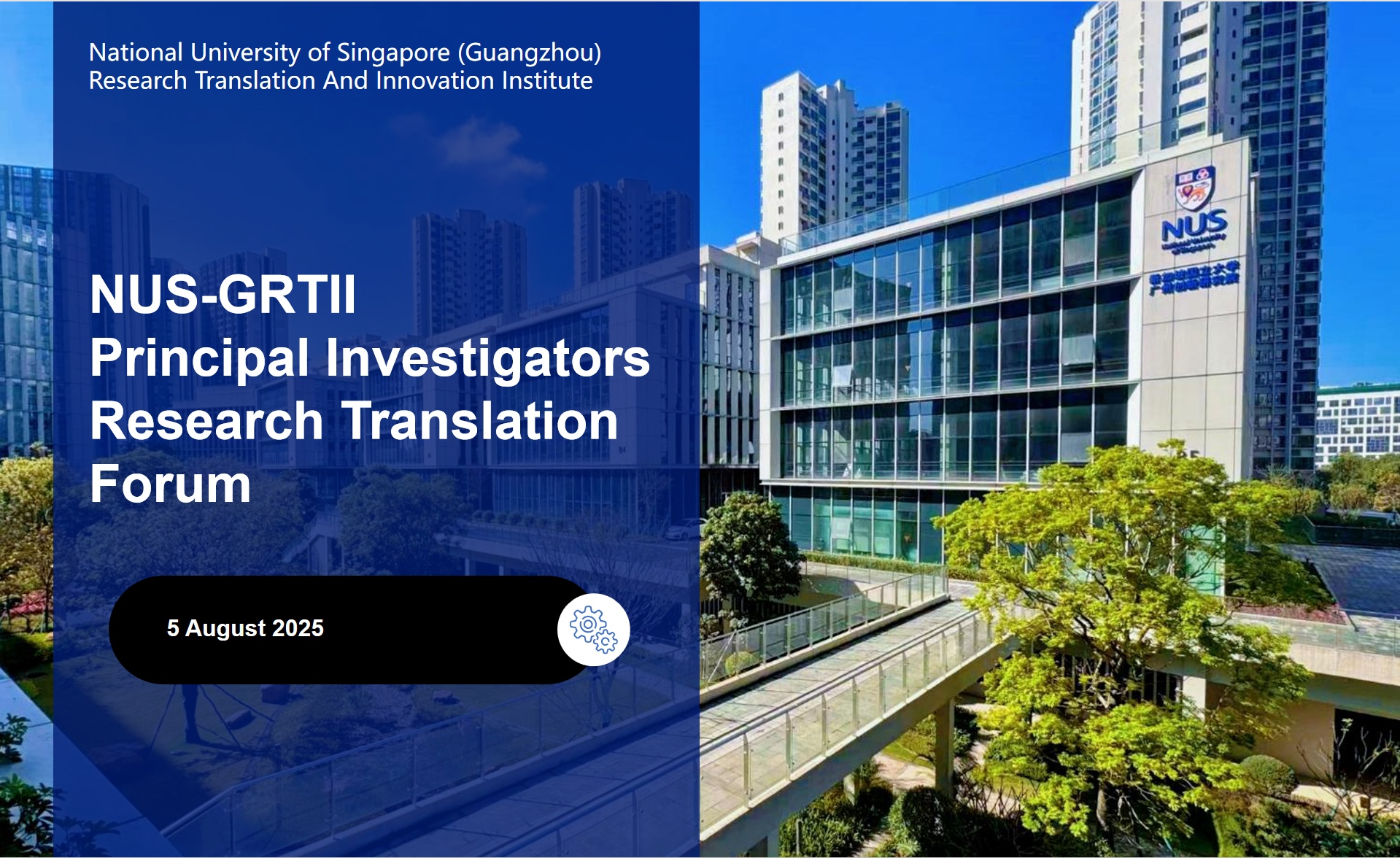
Opening Remarks
The forum commenced with a warm welcome address by Professor Hang Chang Chieh, NUS Emeritus Deputy President and President of the NUS GRTII Council. Professor Hang emphasized that globalization and innovation are the core drivers of future development, commending Guangzhou as a dynamic “hotbed of innovation” with immense potential. He noted that the rapidly evolving global economic and political landscape, coupled with Singapore’s challenges of limited market size and intensifying regional competition—particularly from major powers—makes it imperative to consolidate efforts to drive the university’s innovation and commercialization strategies.
To address these challenges, Professor Hang proposed a pragmatic approach: innovation must align closely with market demands to ensure practical applicability; greater emphasis should be placed on advancing Technology Readiness Levels to bridge the gap between frontier research and industrial application; and a global yet localized innovation strategy should be adopted. This includes strategically recruiting postdoctoral researchers and engineers with practical expertise, building a diverse and international talent pool to spark vitality, and leveraging NUS’s robust global network to achieve synergistic effects.
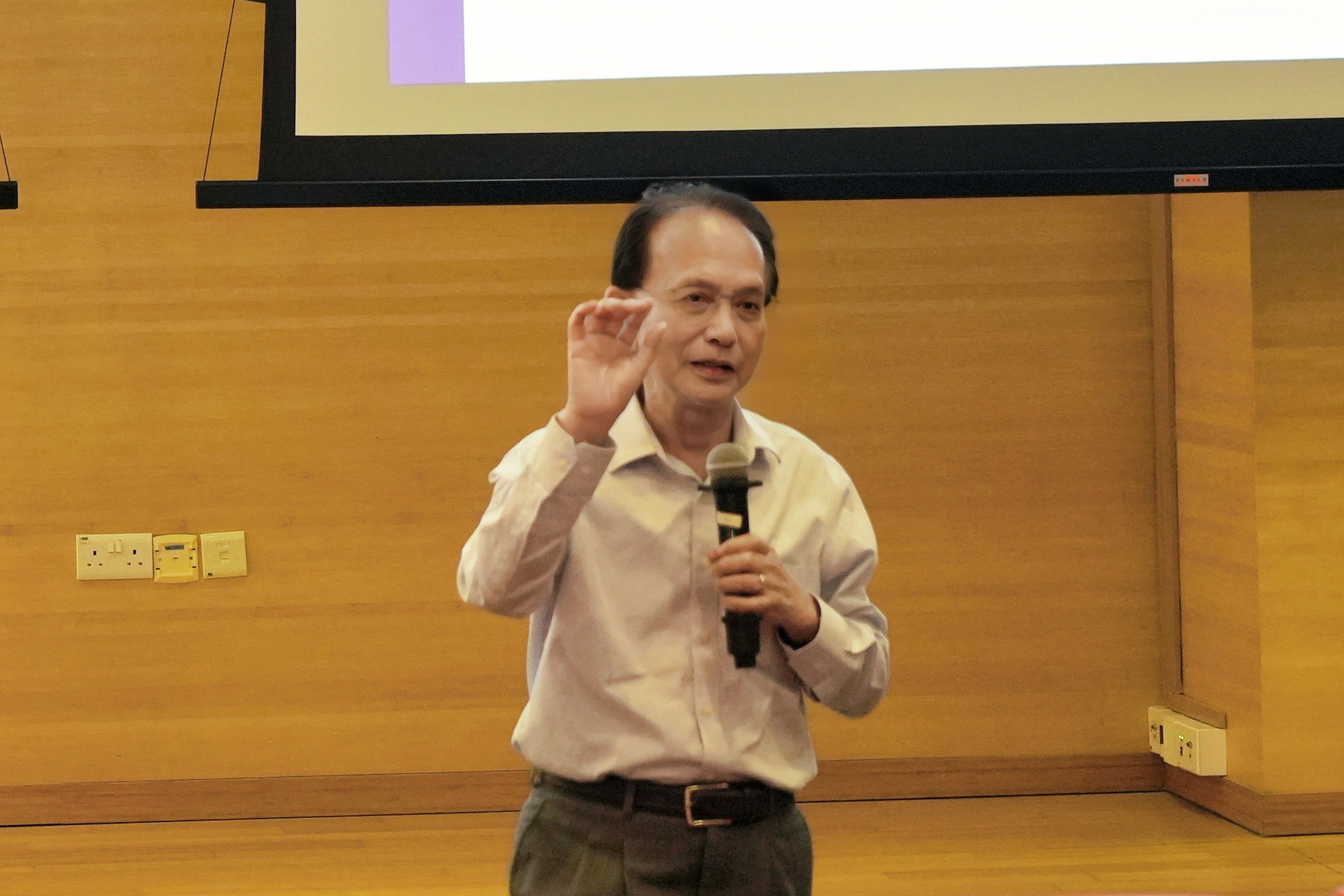
Professor Hang Chang Chieh, NUS Emeritus Deputy President and President of the NUS GRTII Council
Following this, Mr. George Loh, NUS Associate Vice President (Strategic Partnerships), delivered his address. He highlighted that international collaboration is not new to NUS but requires strategic efforts to meaningfully enhance its influence in China. Mr. Loh outlined the core objectives of deepening cooperation with China: leveraging the strong ties between Singapore and China to establish a strong presence in key cities such as Guangzhou, Suzhou, and Chongqing, transforming cutting-edge research into market-ready products and services to achieve both academic and local market benefits. He stressed that the essence of Singapore-China collaboration lies in mutual benefit, requiring both parties to integrate their strengths, focus on research with practical applications, and comply with policy and regulatory requirements. In closing, Mr. Loh expressed NUS’s enthusiasm for expanding international collaboration opportunities, particularly through the NUS GRTII platform, to write a new chapter of Singapore-China cooperation in the vibrant Greater Bay Area.
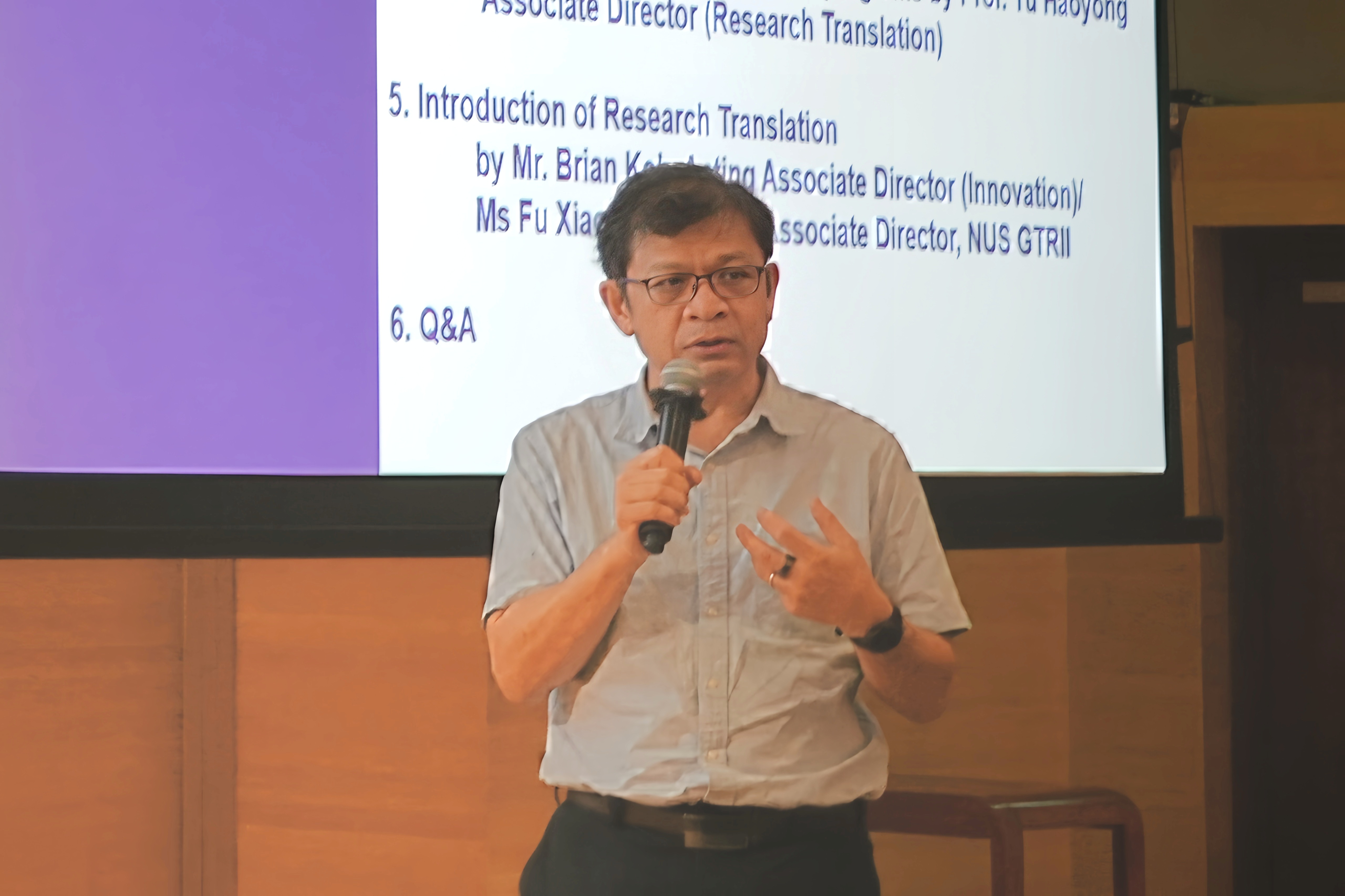
Mr. George Loh, NUS Associate Vice President (Strategic Partnerships)
Together We Thrive: Building a Pinnacle of Singapore-China Innovation
Next, Professor Shuzhi Sam Ge, Director of NUS GRTII, delivered a speech on behalf of the institute, detailing its founding background and development journey. Since its establishment in September 2023, NUS GRTII has made significant strides in industry-academia-research collaboration. Professor Ge highlighted Huangpu District’s rich historical and cultural heritage, noting that a century ago, Mr. Sun Yat-sen founded the world-renowned Whampoa Military Academy in this very location. Today, it is an honor to collaborate with PIs to establish NUS GRTII. The institute aspires to be a model of Singapore-China cooperation, creating a leading platform for international collaboration, industrial innovation, and talent exchange to propel the development of the Greater Bay Area.
Professor Ge expressed gratitude to NUS, the Guangzhou Municipal Government, and the China-Singapore Guangzhou Knowledge City Administrative Committee for their strong support. He emphasized that Huangpu District not only offers fertile ground for research translation and entrepreneurship but also provides comprehensive industrial support and favorable policies to empower high-caliber talent and premium projects. Huangpu is eager to attract top talent and is well-equipped to support the commercialization of research projects. Professor Ge warmly welcomed PIs to Huangpu, pledging NUS GRTII’s commitment to being a strategic partner in their research translation and entrepreneurial endeavors, working together to create a globally influential innovation benchmark.
Quoting a well-known insight from the scientific community—“Why has Chinese research advanced so rapidly? Because they never fight alone; a lone actor struggles, but collective efforts lead to success”—Professor Ge underscored that unity is key to extraordinary achievements. He expressed hope that NUS GRTII’s PIs would move beyond traditional solitary research models, integrating research translation, innovation incubation, and talent cultivation to collectively forge transformative endeavors and inject strong momentum into Singapore-China collaboration.
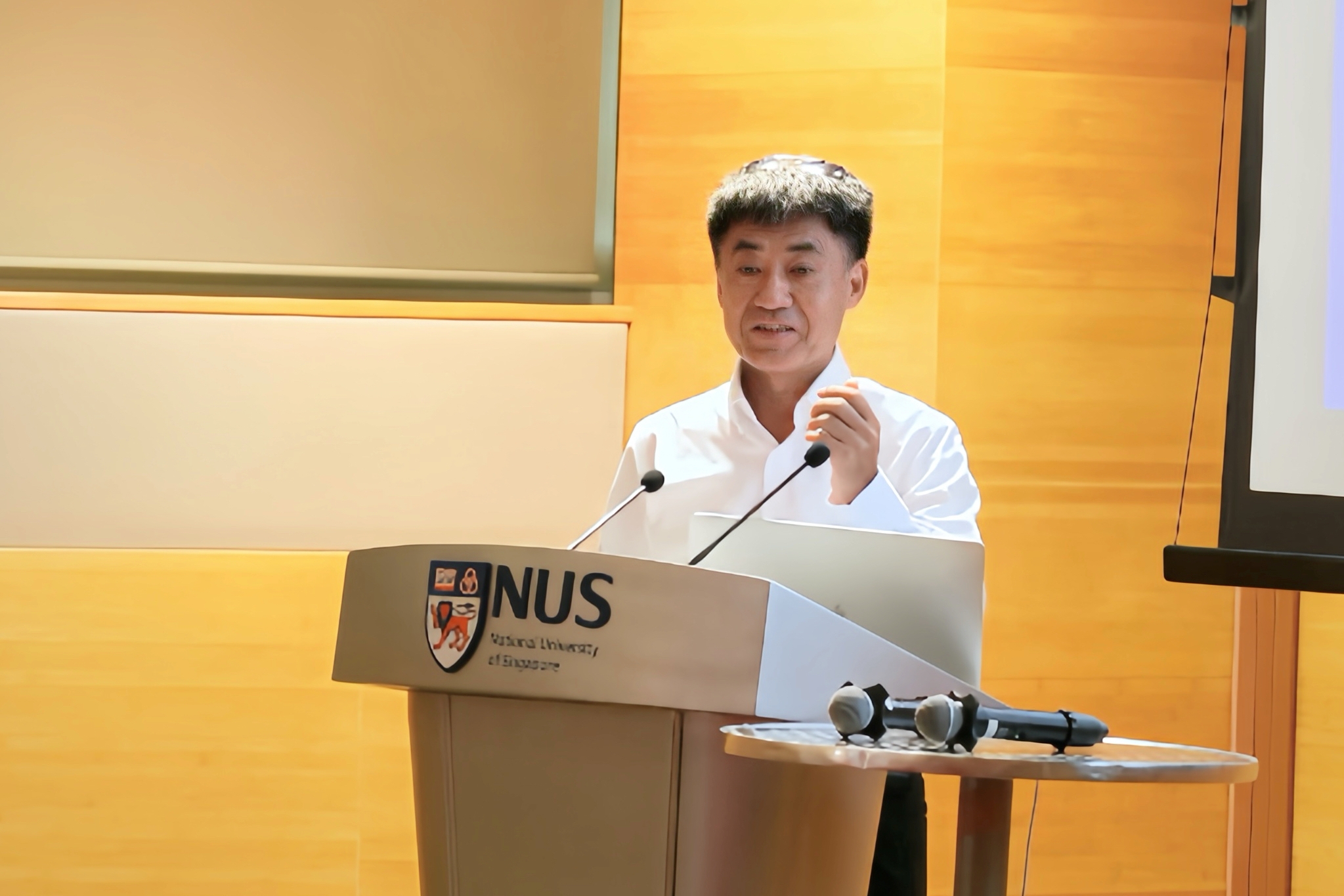
Professor Shuzhi Sam Ge, Director of NUS GRTII
Nurturing Talent and Supporting Research: A Detailed Look at the Talent Development and Research Support System
Subsequently, Associate Professor Yu Haoyong, Associate Director (Research Translation) of NUS GRTII, introduced the institute’s PhD Scholarship Program and Postdoctoral Program. The PhD Scholarship Program, funded by the Guangzhou Municipal Government and leveraging NUS’s world-class educational resources, aims to cultivate globally minded talent to serve the development needs of the Greater Bay Area, Huangpu District, and the China-Singapore Guangzhou Knowledge City. The Postdoctoral Program focuses on research translation, technology transfer, and entrepreneurial incubation, aligning with NUS GRTII’s seven key research areas. It encourages postdoctoral researchers to transform their research outcomes into practical applications, establish startups, and drive regional development.
Professor Yu emphasized that NUS GRTII will offer comprehensive management and support for all research projects and assist researchers in applying for national and provincial research grants. Additionally, the institute is establishing a robust intellectual property framework to ensure efficient translation of research outcomes, creating value for the regional economy and society.
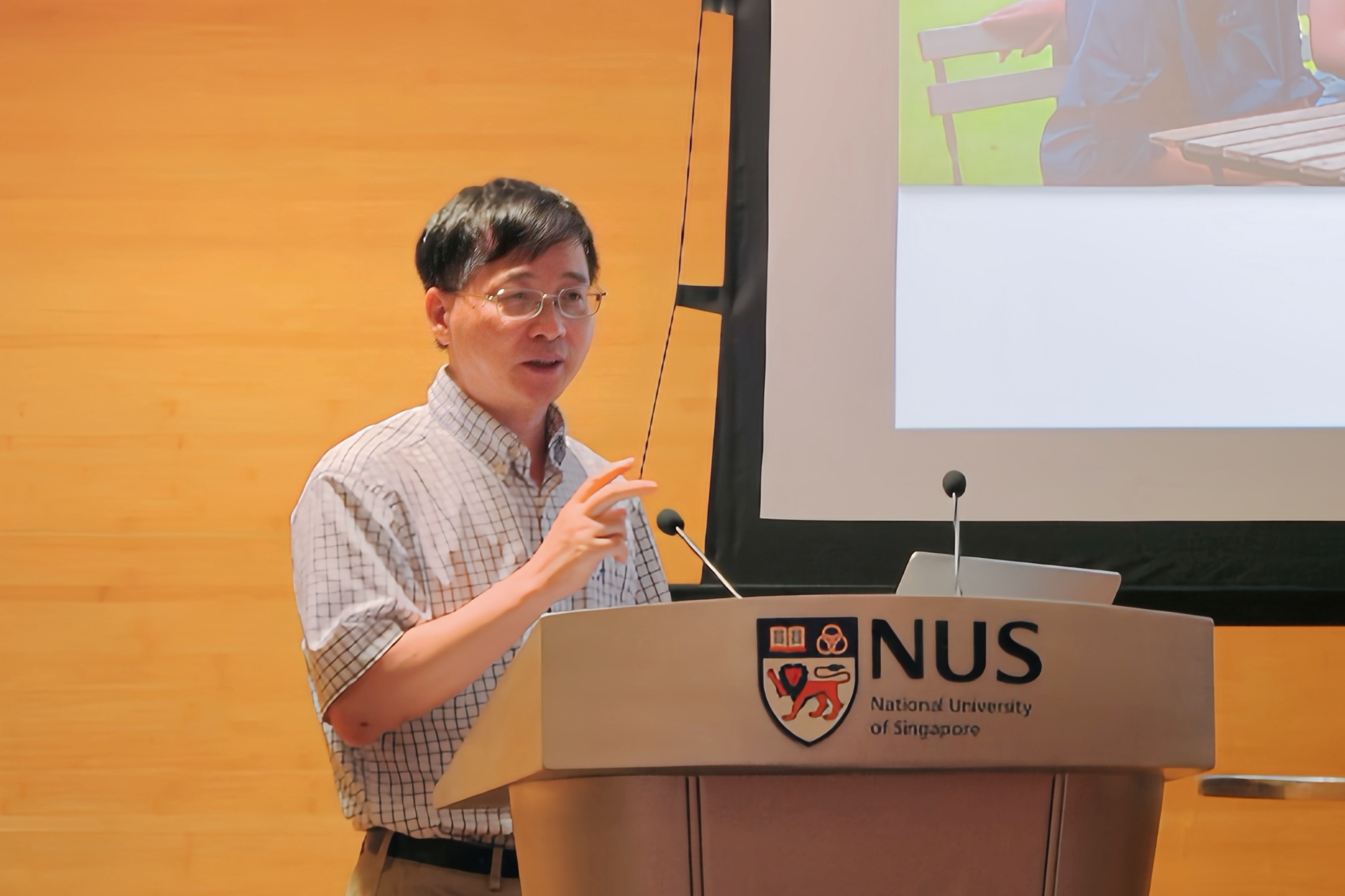
Associate Professor Yu Haoyong, Associate Director (Research Translation) of NUS GRTII
Ecological Empowerment: BLOCK71 Guangzhou's Practice in Technology Transfer
Ms. Fu Xiaofang, Senior Associate Director of NUS GRTII, delivered a talk themed “The Research Translation Ecosystem of BLOCK71 Guangzhou”, presenting participating PIs with an innovative blueprint that bridges Singapore’s research DNA with the industrial momentum of the Greater Bay Area.
Taking a global perspective, she vividly illustrated how the Institute leverages NUS’s international network and the strategic advantages of the Guangdong–Hong Kong–Macao Greater Bay Area to build an enabling system that transforms laboratory technologies into market-ready products.
Through real-life cases and regional industrial data, Ms. Fu concretely demonstrated feasible pathways and collaboration opportunities for research translation in the Greater Bay Area. She sincerely encouraged PIs to seize policy dividends and cross-border resources, bringing cutting-edge research to thrive in the fertile ground of the Greater Bay Area.
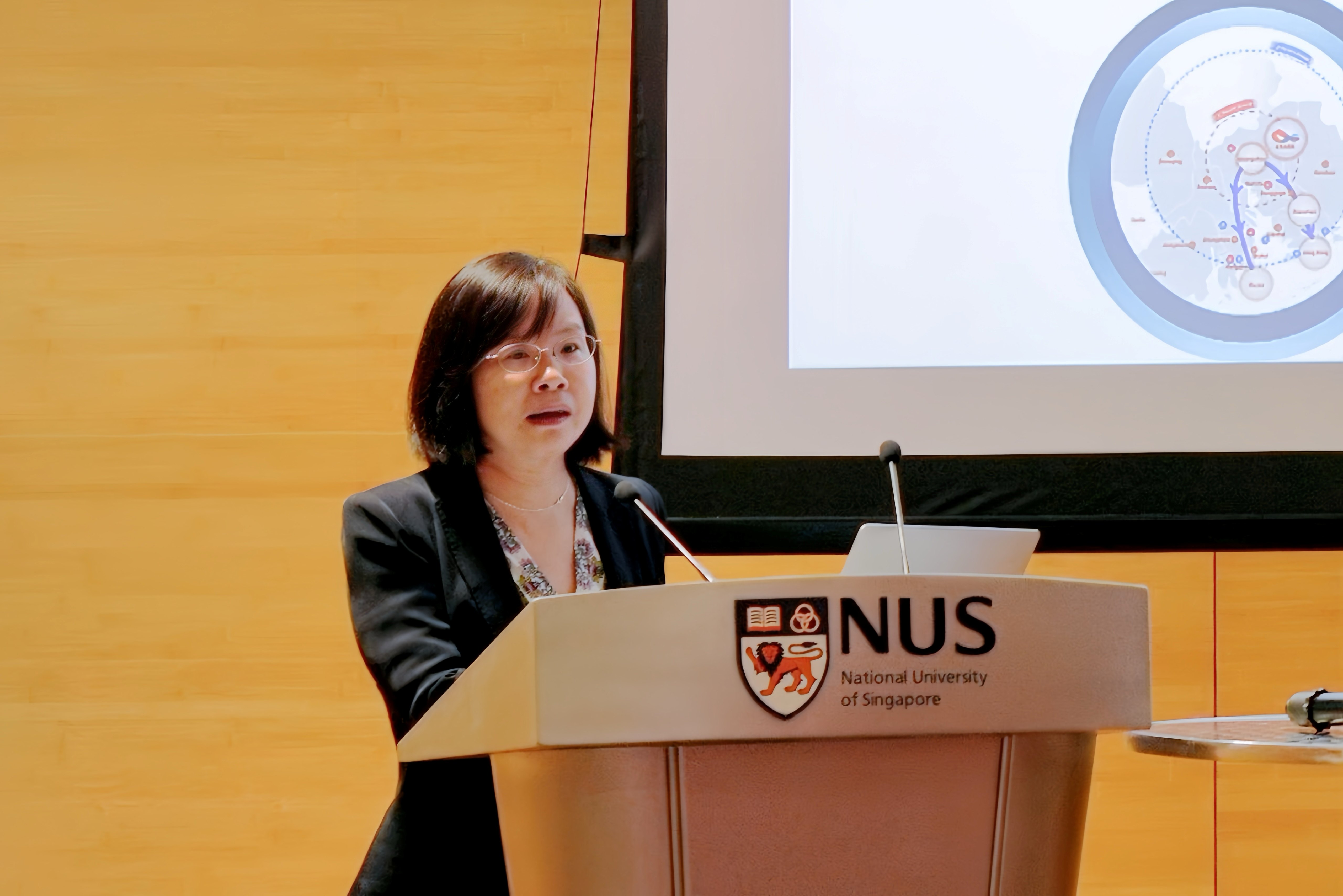
Ms. Fu Xiaofang, Senior Associate Director of NUS GRTII
Lively and Constructive Exchanges
The Q&A session unfolded in a warm and dynamic atmosphere, with PIs engaging in in-depth conversations with the GRTII team on topics of mutual interest.
Associate Professor Ong Soh Khim from NUS’s Department of Mechanical Engineering expressed her interest in Guangzhou’s research and innovation ecosystem, noting her hope to visit Guangzhou for a closer assessment. Assistant Professor Zhu Lailai, also from the Department of Mechanical Engineering, sought more information about Guangzhou's entrepreneurship support resources and talent attraction policies. Assistant Professor Yang Yiyuan from the Department of Biomedical Engineering conveyed his interest in the Institute’s postdoctoral program, raising detailed questions about recruitment processes and talent-sourcing channels.
Through open and candid dialogue, participants exchanged valuable information and built consensus, laying a solid foundation for future collaborative development.
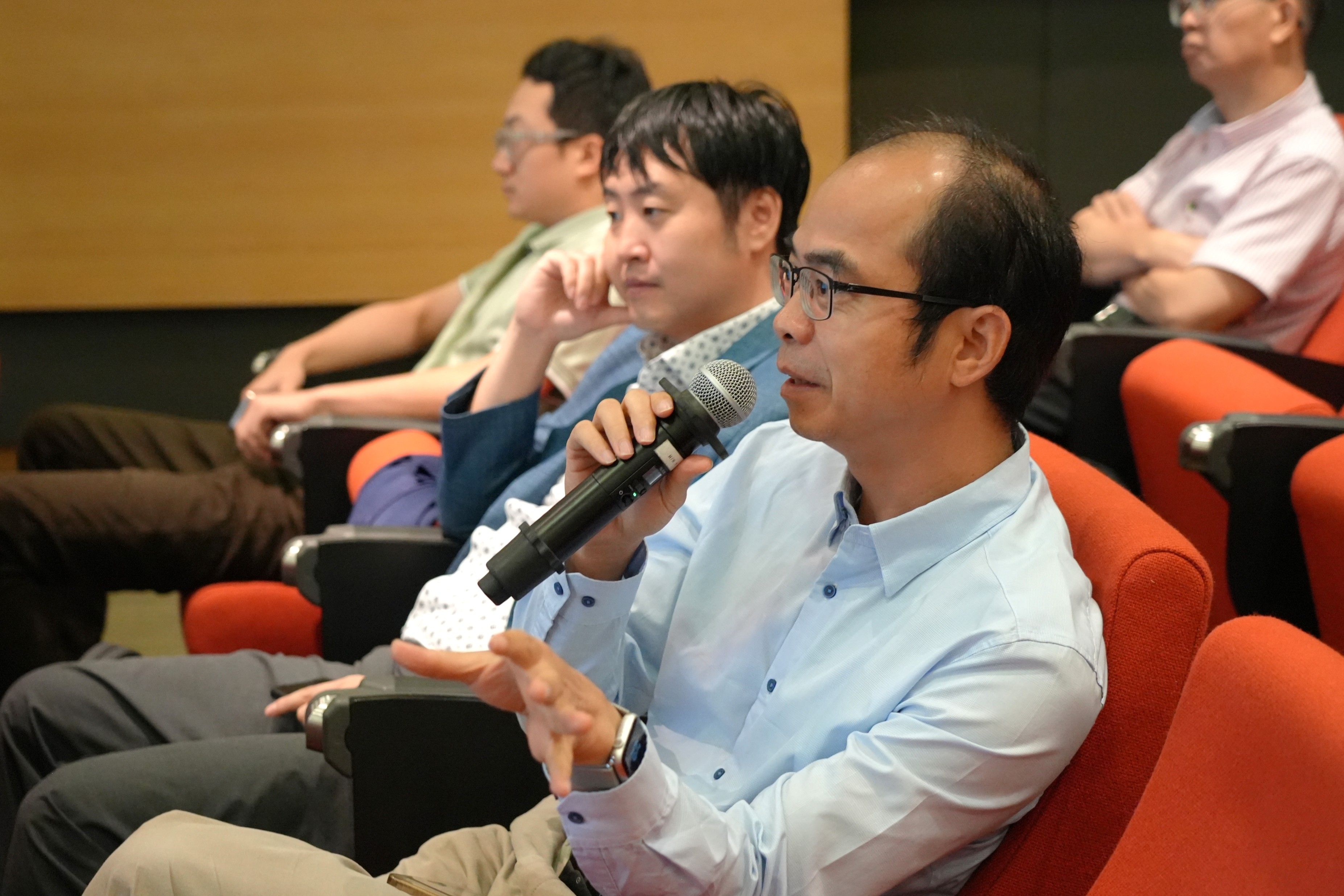
This PI networking session not only fostered in-depth interaction between the GRTII and the PI teams, enhancing the Institute's understanding of the PIs' needs, but also served as a significant platform to showcase the research translation and innovation–entrepreneurship ecosystem of the Guangdong–Hong Kong–Macao Greater Bay Area and Guangzhou’s Huangpu District.
NUS GRTII is actively driving the transformation of NUS’s high-quality research outcomes from “from the lab to the market.” We extend a warm invitation to outstanding talents and research projects to establish their presence in the GBA and Huangpu District, Guangzhou. Together, we can harness innovation intelligence to empower industrial development and, alongside the Institute, write a new chapter in industry-academia-research integration amid the tide of international scientific collaboration.


